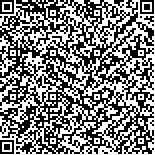| 引用本文: |
何微,王建芬,杜玉菲,刘鹰,马迎.基于酪氨酸酶抑制活性的八白散组方研究[J].湖南中医药大学学报,2018,38(9):1009-1011[点击复制] |
|
| |
|
|
| 本文已被:浏览 3513次 下载 1306次 |
| 基于酪氨酸酶抑制活性的八白散组方研究 |
| 何微,王建芬,杜玉菲,刘鹰,马迎 |
| (长沙医学院药学院, 湖南 长沙 410219;湖南九典制药股份有限公司, 湖南 浏阳 410329) |
| 摘要: |
| 目的 优化八白散中具有酪氨酸酶抑制活性的组方配伍,提高该组方的美白功效。方法 通过紫外分光光度法测定八白散组方水提物对酪氨酸酶的抑制率。以酪氨酸酶抑制率为评价指标,运用均匀设计法探索八白散剂量比例与酪氨酸酶抑制率的关系。结果 均匀设计实验中,八白散组方中m(白芷):m(白及):m(白附子):m(白茯苓):m(白牵牛)=42:21:2:4:51时,对酪氨酸酶活性的抑制率为86%,多元线性回归分析表明白芷、白茯苓为酪氨酸酶抑制主要药材,白牵牛和白附子在组方中对酪氨酸酶抑制活性存在负相关作用,随着二者配伍比例增加,抑制活性呈下降的趋势,而白及药材未显现出对酪氨酸酶有抑制作用。结论 八白散组方配伍h优化后,对酪氨酸酶抑制活性与单味药材相比存在差异,可为八白散组方配伍的进一步研究提供参考。 |
| 关键词: 酪氨酸酶 均匀设计 八白散 紫外分光光度法 |
| DOI:10.3969/j.issn.1674-070X.2018.09.009 |
| 投稿时间:2018-03-06 |
| 基金项目:2014年湖南省校企合作人才培养示范基地项目(湘教通[2014]272号);长沙医学院2014年度大学生研究性学习与创新性课题(长医教[2014]10号)。 |
|
| Prescription Formulation of Babai Powder Based on Tyrosinase Inhibitory Activity |
| HE Wei,WANG Jianfen,DU Yufei,LIU Ying,MA Ying |
| (School of Pharmacy, Changsha Medical University, Changsha, Hunan 410219, China;Hunan Jiudian Pharmaceutical Co., Ltd., Liuyang, Hunan 410329, China) |
| Abstract: |
| Objective To optimize the prescription formulation and compatibility of Babai powder with tyrosinase inhibitory activity, and to improve the whitening effect of this prescription. Methods Ultraviolet spectrophotometry was used to measure the inhibition rate of tyrosinase by water extract of Babai powder. With the inhibition rate of tyrosinase as the assessment index, uniform design was used to investigate the correlation between the dosage ratio of Babai powder and tyrosinase inhibition rate. Results In the uniform design experiment, when m (Radix Angelicae Dahuricae):m (Rhizoma Bletillae):m (Rhizoma Typhonii):m (white Poria cocos):m (Pharbitis nil) was 42:21:2:4:51, the inhibition rate of tyrosinase activity was 86%. The multivariate linear regression analysis showed that Radix Angelicae Dahuricae and white Poria cocos were the main herbal medicines for tyrosinase inhibition. The ratios of Pharbitis nil and Rhizoma Typhonii were negatively correlated with tyrosinase inhibitory activity, and their inhibitory activity tended to decrease with the increase in their ratios. Rhizoma Bletillae had no significant inhibitory effect on tyrosinase. Conclusion There is a significant difference in tyrosinase inhibitory activity between the optimized prescription formulation and compatibility of Babai powder and each single medicine, which provides a reference for further research on the prescription formulation and compatibility of Babai powder. |
| Key words: tyrosinase uniform design Babai powder ultraviolet spectrophotometry |
|

二维码(扫一下试试看!) |
|
|
|
|




